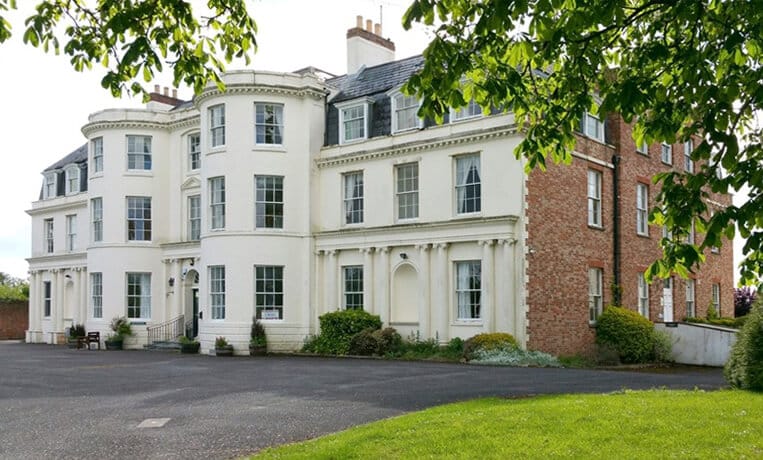Situated just nine miles northeast of Manchester at the foothills of the Pennines, Rochdale enjoys a combination of urban and rural living that makes it one of Greater Manchester’s most popular destinations.
However, the harrowing impacts of substance addiction harm more members of its community each year, many of whom are yet to seek the guidance of a drug and alcohol rehab in Rochdale.
Recent post-pandemic statistics courtesy of the ONS paint a harrowing picture of Rochdale’s problematic drinking habits.
These reports have shown that people in Rochdale are almost twice as likely to die due to alcohol misuse compared to the national average: 26.4 deaths per 100,000 adults in 2020.
This poignant trend is reflected in statistical reports for Greater Manchester- with the entire area seeing 1,172 deaths in 2020 where alcohol was a contributing factor.
Such tragic loss of life is the worst-case scenario for what happens when those struggling with alcohol use aren’t accessing the support they need in Rochdale.
In addition to hazardous drinking in the Rochdale locale, drug use has continued to climb.
The borough is among the first wave of UK authorities receiving enhanced funding based on its local drug death rate, opiate prevalence, and drug-related crime.
The need for an injection of funding to help those most vulnerable in Rochdale was identified after the release of a worrying data set.
In 2020, The Greater Manchester Drugs Strategy Report stated that one-third of the area’s residents perceive a “fairly/very big problem.”
With people using or dealing drugs in their neighbourhood and an estimated 11,000 children are living with an opiate-dependent adult.
Please call our 24-Hour Helpline: 0800 140 4690

In many cases of Substance Use Disorder (SUD), someone may not decide to enter a drug and alcohol rehab in Rochdale immediately.
First, they may want to use a diagnostic tool, either at home in the form of a self-assessment or in a clinical environment.
While substance-use questionnaires should never be used in place of expert guidance, they can be useful for someone wanting to gauge the scale of their addiction.
Please call our 24-Hour Helpline: 0800 140 4690

For individuals who think they might harbour a potential alcohol problem, The CAGE Questionnaire is a useful preliminary test.
Designed as a self-report questionnaire, the name CAGE is an acronym for four questions surrounding key concepts within alcoholism: “Cut down”, “Annoyed”, “Guilty”, and “Eye-opener”.
These questions will ask subjects to answer either “yes” or “no” to queries about the emotions they experience when drinking and whether they use alcohol to cope with specific situations. The articles appear in the following format:
Please call our 24-Hour Helpline: 0800 140 4690

While created by clinicians to identify problem drinking, CAGE is often adapted to screen for drug-use disorders.
Re-named CAGE-AID, this reworked format simply replaces the phrases “drinking” with “drug-use” or “using drugs” in the following questions:
1. Do you ever feel that you should cut down on your drug use?
2. Have people annoyed you by criticising your drug use?
3. Do you ever feel guilty about using drugs?
4. Have you ever used drugs in the morning to steady your nerves or combat withdrawal symptoms (eye-opener)?
Often taking less than five minutes to complete, subjects simply need to count the number of “yes” answers they gave, which will increase their score by one each time.
A total score of two or higher is considered clinically significant, while those scoring four should seek professional advice immediately from a drug and alcohol rehab in Rochdale.
Please call our 24-Hour Helpline: 0800 140 4690

Persuading someone you love to seek clinical assistance is easy in the case of most health conditions but isn’t always straightforward for those with a substance addiction.
Decades of harmful stigma and internalised shame have led many people to deny their substance use disorder or posit they aren’t worthy of treatment.
For those with an addicted loved one refusing treatment, helping them enter a suitable drug and alcohol rehab in Rochdale often begins with an intervention.
This is a gathering of Concerned Significant Others (CSOs) who realise the subject’s addiction and want to help them start their recovery.
However, there’s more to a successful intervention than simply talking to an addicted loved one.
Some of the most successful examples are those that have been guided by a certified interventionist: who will be a psychiatrist, clinician, or social worker specialising in SUD treatment.
As interventions can bring many emotions, both positive and negative, to the fore of a familial dynamic, these professionals will keep meetings on track.
In addition to providing an objective standpoint, an interventionist will offer pre-arranged treatment, educate participants on the nature of addiction, and provide emotional support.
Part of facilitating an intervention professionally is implementing a strategy or framework that can be tailored to each family’s needs.
Please call our 24-Hour Helpline: 0800 140 4690

Following a psychologist-designed programme such as CRAFT is one way that an interventionist will optimise the intervention process: as it focuses on the welfare of each participant.
CRAFT was developed as a way to help the person struggling with SUD without forcing an unnecessary confrontation between friends and family.
Its methodology addresses an addicted individual’s reluctance to change through goal-setting, self-care, and trigger management in ways similar to motivational therapies.
Please call our 24-Hour Helpline: 0800 140 4690

Oftentimes, finding a treatment for addiction that aligns with your particular circumstances comes down to its financial accessibility.
Here in the UK, we have the option to either privately fund addiction treatment at a drug and alcohol rehab in Rochdaleor to go through the NHS.
However, in contrast to what many people believe, the cost of rehab isn’t as extortionate as it once was: thanks to the implementation of payment schemes and financial aid.
There are plenty of different private clinics catering to a range of budgets, alongside government-funded treatment that has always been free of charge.
Please call our 24-Hour Helpline: 0800 140 4690

The NHS fully finances at least one primary treatment programme for individuals suffering from SUD, making it an incredibly sought-after service.
However, due to the funds needed for residential rehab care, patients on the NHS are usually outpatients: meaning they return home after appointments.
While outpatient treatment via the NHS is beneficial for milder addictions and is accessible to the majority, it isn’t always optimal for severe SUD.
Due to the large number of individuals seeking NHS care and the shortage of funds, waiting lines are exceptionally long.
This means that those in need of professional help must wait for dangerous lengths of time to begin recovering.
Please call our 24-Hour Helpline: 0800 140 4690

For these reasons, a private drug and alcohol rehab in Rochdale may be more useful than NHS-funded treatment.
Individuals enrolling in these programmes receive same-day admission, personalised treatment, and exceptional facilities.
Along with accommodation, food, and a range of therapies available, this level of treatment nevertheless comes with a price tag.
Choosing a standard 28-day residency will cost a patient anywhere between £7,000 and £14,000, depending on how luxurious the facilities are, the therapies offered, and the clinic’s location in Rochdale.
Please call our 24-Hour Helpline: 0800 140 4690

Before you attend residential rehab, you are able to visit each clinic we recommend in Rochdale to help you decide which particular rehab is most suited to your needs.
Some of the benefits of residential rehab in Rochdale include:
Please call our 24-Hour Helpline: 0800 140 4690

The simple answer to this is “yes”: most insurance providers will cover their clients for a period of addiction treatment at a drug and alcohol rehab in Rochdale- treating it the same as any other chronic illness.
However, the exact amount of money that you can expect to receive back will depend on the specific policies of your chosen company and the level of insurance package that you originally chose.
As each company will differ in their level of cover, it’s important to have all the information regarding your planned treatment to hand.
Whether someone plans to undergo treatment as an inpatient or outpatient can affect their reimbursement, as will their length of stay, and so on.
While companies such as BUPA fully cover a residential bout of treatment, others will only reimburse a patient’s detox.
Moreover, it’s important to disclose to your provider whether you’ve received a single or dual diagnosis: such as substance use disorder with depression, anxiety, or another common co-occurring condition.
Such a diagnosis can require additional treatment, which some companies will cover while others do not.
Once you’ve received the results of your consultation, Rehab 4 Addiction will provide you with all the information you need, such as the factors stated above, to call your insurance provider.
A member of their team will guide you through your unique insurance package and explain which elements of treatment you’ll be covered for at a drug and alcohol rehab in Rochdale.
Please call our 24-Hour Helpline: 0800 140 4690

The compulsion to use heroin or similar opioids leads to a variety of heartbreaking problems: including both personal and financial ruin.
However, it’s possible to make a full recovery via inpatient care at a drug and alcohol rehab in Rochdale, where treatment is tailored to suit the severity of heroin addictions.
Before enrolling, victims of heroin addictions will receive a pre-admission evaluation: wherein a consultant will design their personalised treatment programme.
While details are tweaked to suit the individual, the basic structure of such programmes is divided into three: detox, therapy, and aftercare.
Please call our 24-Hour Helpline: 0800 140 4690

The first phase of treatment is a pharmacologically assisted detox that starts before heroin leaves the system entirely and takes around ten days to complete.
Designed to ease the symptoms caused by heroin withdrawal, the medicated detox incorporates therapy and medications to help the body and brain recover.
The type of medication prescribed to each patient during their bespoke detox depends on their severity and the symptoms they are most at risk of developing.
Some medications are designed to inhibit cravings by blocking heroin’s euphoric high, such as Naltrexone, while others lower blood pressure and calm the nervous system, such as Clonidine.
While medication is important for optimising comfort during heroin detox, inpatients at a drug and alcohol rehab in Rochdale receive all kinds of support.
This includes round-the-clock medical supervision, vitamin supplements and dietary support, comfortable accommodation, and holistic therapy.
Please call our 24-Hour Helpline: 0800 140 4690

After establishing the optimal foundation for future recovery, patients can move on from detox to psychotherapy and behavioural interventions: with programmes lasting up to 60 days.
A team of trained psychiatrists and clinicians will be on hand to help patients progress psychologically and prepare for living a healthier life after rehab for heroin.
A large part of long-term treatment for heroin is receiving psychosocial interventions within the structured setting of a rehab.
Rational Emotive Behavioural Therapy (REBT) and Cognitive Behavioural Therapy (CBT) are popular methods for helping patients learn to live without heroin.
They teach clients to identify, challenge, and replace the destructive thoughts and behaviours that led to heroin use in the first place.
Please call our 24-Hour Helpline: 0800 140 4690

Alcohol Use Disorders are harrowingly prevalent in Greater Manchester, with even more individuals struggling with problem drinking since the COVID pandemic.
Fortunately, the stigma of shame surrounding AUD is decreasing, leading more vulnerable people to present for treatment at a drug and alcohol rehab in Rochdale.
For those worried that they’ve lost control of their drinking, long-term help begins by receiving a free consultation at Rehab 4 Addiction.
If our consultant psychiatrist diagnoses you with AUD, you’ll be recommended a comprehensive, inpatient programme to treat your condition from its root causes.
Typically, patients with AUD will enter a rehab clinic of their choosing for between 28 and 60 days, depending on how long they’ve been drinking heavily.
However, while each individual is treated according to their needs, each patient begins recovery comfortably through a medicated detox lasting around seven days.
Please call our 24-Hour Helpline: 0800 140 4690

Like heroin, alcohol is a physically addictive drug that can cause an array of bodily withdrawal symptoms.
Therefore, to avoid mild or severe discomfort, patients are given a set of medications tailored to their needs: often including Naltrexone, Acamprosate, or Librium therapy.
Acamprosate stabilises chemical signals in the brain that might otherwise be disrupted by alcohol withdrawal: leading to a reduction in cravings.
For more physical symptoms, Librium is utilised to calm the nervous system and prevent nerve activity from leading to anxiety and general agitation.
Following the all-important medicated detox, patients in rehab for alcohol progress on to the psychotherapeutic methods that have been prearranged for them.
This includes both individual and group support therapy under the guidance of a counsellor, in addition to holistic therapy and behavioural interventions.
Please call our 24-Hour Helpline: 0800 140 4690

While quitting any drug: be it alcohol, opioids, or stimulants, is daunting, substance use disorders involving cocaine are among the hardest to abstain from.
Consuming stimulants regularly leads to powerful psychological addictions that require long-term care at a drug and alcohol rehab in Rochdale.
Before beginning the bulk of their recovery journey as an inpatient, most individuals with cocaine addictions require a structured detox with both emotional and medical support available.
Please call our 24-Hour Helpline: 0800 140 4690

Detox programmes often last around one week and focus on treating the largely psychological withdrawal symptoms caused by stimulants.
Patients who begin to experience anxiety or depression are usually prescribed Modanifil: a medication used to stabilise dopamine levels or Topiramate for aiding a healthier sleep pattern.
If a patient is thought to have a co-occurring mental health disorder beyond psychological withdrawal symptoms, they may be prescribed an SSRI medication to promote long-term healing.
Though important, detox for cocaine shouldn’t be considered a treatment in itself but rather a way of giving patients the best start to their longer-term recovery journeys.
Following their detoxification, subjects will enter a behavioural programme tailored toward treating cocaine use disorders.
Evidence-based practices that feature in these programmes include group therapy, motivational enhancement, and Contingency Management (CM).
CM promotes sobriety by rewarding patients tangibly for shows of abstinence (clean urine samples, etc.), with incentives ranging from movie passes to monetary vouchers.
Please call our 24-Hour Helpline: 0800 140 4690

Cannabis is widely favoured for its ability to promote relaxation and calm the nerves, causing many people to overlook its addictive potential.
As a psychoactive drug, cannabis can cause debilitating psychological dependencies when over-used: causing people to seek the help of a drug and alcohol rehab in Rochdale.
Clinics offering programmes for cannabis use disorders will prescribe either inpatient or outpatient care, depending on someone’s severity.
If an individual has tried many times to quit cannabis without success, they’ll likely benefit from a 28-day comprehensive programme.
These inpatient programmes are structured similarly to those for heroin, alcohol, or cocaine.
Firstly, patients must complete detox to gradually reduce their cannabis consumption before moving on to complete counselling programmes, holistic therapy, and group support sessions in the clinic of their choice.
During individual therapy sessions (usually CBT or DBT), patients will explore the behavioural and/or emotional reasoning behind their cannabis addiction.
If there’s past trauma at the root of their dependency, psychiatrists usually prescribe a course of Dialectical Behavioural Therapy.
DBT sessions equip those recovering from cannabis use disorder with the emotional tools needed to manage their feelings and build healthy coping strategies.
Please call our 24-Hour Helpline: 0800 140 4690

Part of ensuring a seamless therapeutic experience is strengthening a patient’s intrinsic motivation.
It’s not uncommon for individuals to present for SUD treatment with a lack of motivation, particularly if they’ve been relying on a substance for many years.
As such, it’s often beneficial for patients at a drug and alcohol rehab in Rochdale to undergo a few sessions of MI before starting psychotherapy.
These counselling-style sessions are patient-focused: meaning a therapist will elicit responses rather than directing the discussion.
MI therapists will try to draw out their patient’s motivation for changing their patterns of substance use and will help remind them why they chose to enter rehab in the first place.
Rather than demanding that they continue with the demands of their treatment programme, counsellors help subjects identify what’s important to them.
Please call our 24-Hour Helpline: 0800 140 4690

CBT has been a staple therapeutic method in rehabilitation centres since the 1960s: featuring in the majority of treatment programmes for addiction.
Its success lies in its aim to change harmful patterns of behaviour: including cognitive distortions and belief systems, into more positive ones.
It’s thought that these negative cognitive patterns are at the core of most substance use disorders.
CBT specialists believe that to increase our health and well-being in the quest for sobriety, we must first learn new ways of thinking.
With this in mind, CBT sessions in rehab teach subjects new, healthier ways of responding to stress and replace negative ways of thinking with positive ones.
Please call our 24-Hour Helpline: 0800 140 4690

DBT is a communication-based, adaptable treatment tool that has seen success in treating substance use disorders all over the UK.
Like CBT, DBT methods both acknowledge the past and look to the future: a dialectical philosophy that has informed its name.
However, unlike CBT which deals exclusively with cognition, DBT places more emphasis on emotions: and, specifically, ways to nurture emotional healing.
Too often, people will turn to substance use as a way of self-medicating the symptoms of a negative life experience.
This could be childhood trauma or an underlying mental health disorder.
During their DBT workshops, patients will learn how to regulate their emotions and learn self-acceptance.
By acknowledging these negative feelings and letting them pass, patients are less likely to seek out drugs or alcohol as a means of coping.
Please call our 24-Hour Helpline: 0800 140 4690

When we think of therapy, our minds usually visualise a one-to-one setting with a psychiatrist: which is usually the case with behavioural interventions.
While these frameworks are important, group healing is equally crucial in optimising the longevity of someone’s recovery.
While attending a drug and alcohol rehab in Rochdale, inpatients are encouraged to partake in daily or weekly group therapy.
These sessions are counsellor-led and involve a group of peers sitting down and discussing elements of recovery: both good and bad.
Feeling supported by a community can reduce feelings of isolation, improve communication skills by allowing individuals to open up, and improve self-awareness.
Over time, group therapy participants in rehab often find themselves working together to solve problems, share coping skills, and build long-lasting friendships.
Please call our 24-Hour Helpline: 0800 140 4690

There’s no need to delay seeking this advice, and we assure you that going to rehab will assist you in reaching your long-term recovery goals.
Rehab 4 Addiction facilitates a variety of addiction treatments in Manchester and across Lancashire in Bolton, Salford, Blackpool, Stockport, Blackburn, Rochdale, Wigan, Preston, Oldham, Bury, Lancaster, Chorley, Burnley and St Annes.
Please call our 24-Hour Helpline: 0800 140 4690
This article was written by Boris Mackey. You can connect with Boris online at LinkedIn or X.com.
[1] Greater Manchester Alcohol Death Rate a Huge Cause for Concern. Accessible here: https://www.acquiesce.org.uk/greater-manchester-alcohol-death-rate-a-huge-cause-for-concern/#:~:text=Figures%20from%20Public%20Health%20England,in%20adults%20and%20under%2018s%2C
[2] Greater Manchester Drug and Alcohol Strategy https://greatermanchester-ca.gov.uk/media/2507/greater-manchester-drug-and-alcohol-strategy.pdf
[3] Local Alcohol Profiles For England and Wales Local Alcohol Profiles for England – Data – OHID (phe.org.uk)
[9] Community Reinforcement and Family Training (CRAFT) https://web.archive.org/web/20230425014932/https://www.apa.org/pi/about/publications/caregivers/practice-settings/intervention/community-reinforcement
 Substance addiction, also referred to as Substance Use Disorder (SUD), is a chronic and relapsing brain disease that affects both physical and psychological functioning. It develops when repeated exposure to drugs or alcohol alters brain chemistry, particularly the reward and motivation systems, leading to compulsive substance use despite harmful c .... Read More
Substance addiction, also referred to as Substance Use Disorder (SUD), is a chronic and relapsing brain disease that affects both physical and psychological functioning. It develops when repeated exposure to drugs or alcohol alters brain chemistry, particularly the reward and motivation systems, leading to compulsive substance use despite harmful c .... Read More
 Addiction recovery is a deeply personal and individual journey. The decision to seek help for your drug or alcohol addiction and rebuild your life generally happens quietly, sometimes after years of struggle. But while recovery starts at an individual level, it’s rarely successful in isolation. Behind most long-term recovery stories is a time whe .... Read More
Addiction recovery is a deeply personal and individual journey. The decision to seek help for your drug or alcohol addiction and rebuild your life generally happens quietly, sometimes after years of struggle. But while recovery starts at an individual level, it’s rarely successful in isolation. Behind most long-term recovery stories is a time whe .... Read More